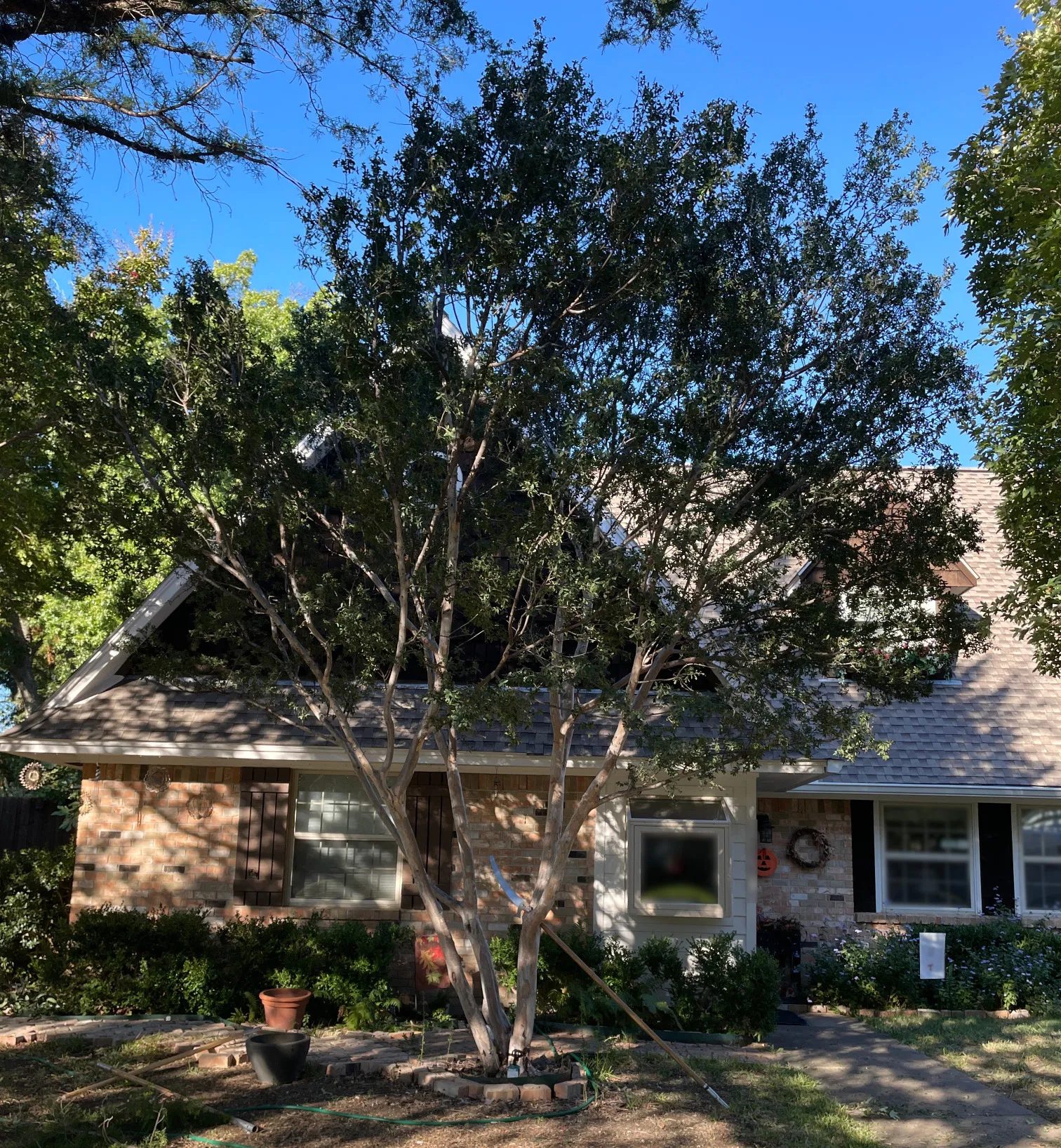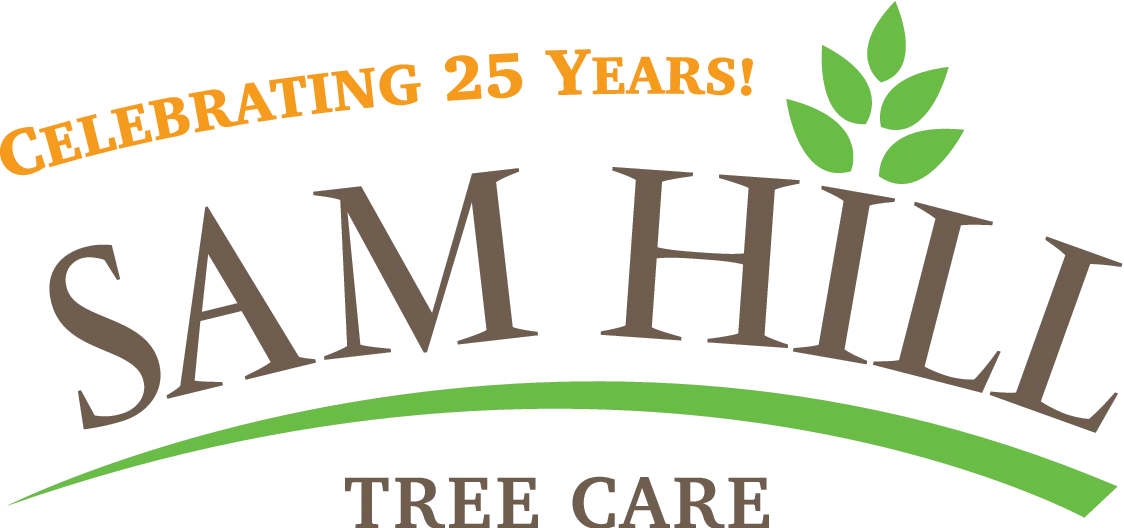
Texas Persimmon PDF
Diospyros texana
Texas persimmon (also known as Mexican persimmon or “Chapote”) is a medium-sized ornamental tree native to Texas. This tree’s most distinctive feature is its smooth gray bark that gives the trunk a muscular, textured look. It is often low-forking or multi-trunked with a spreading oval crown. In Dallas it typically grows 15–25 feet tall, with a few exceptional specimens growing to 40 feet. It thrives in our hot, dry conditions and prefers well-drained, rocky soils.
Unlike most plants, Texas persimmon is dioecious, meaning each specimen has only male or female flowers. Consequently, only a female tree will produce its signature gumball-sized black fruit. Wildlife love these fruits, but they may stain patios and driveways when crushed. If that is a concern, either plant a male tree or pick a site away from the pavement.
Overall, Texas persimmon is a hardy, attractive choice for North Texas landscapes, especially in sunny spots where a compact, drought-tolerant tree is desired.
Pros:
-
The thin, smooth bark exfoliates in patches, exposing mottled tones of gray, white, and even pink on the trunk for year-round visual interest.
-
Unlike oaks or elms, few serious pests or diseases threaten the Texas persimmon.
Cons
-
When crushed, the fruit may stain hardscapes. It has historically been used to produce black dye.
-
While hardy, this tree naturally grows on rocky outcroppings and does not do well in poorly-drained soils.

